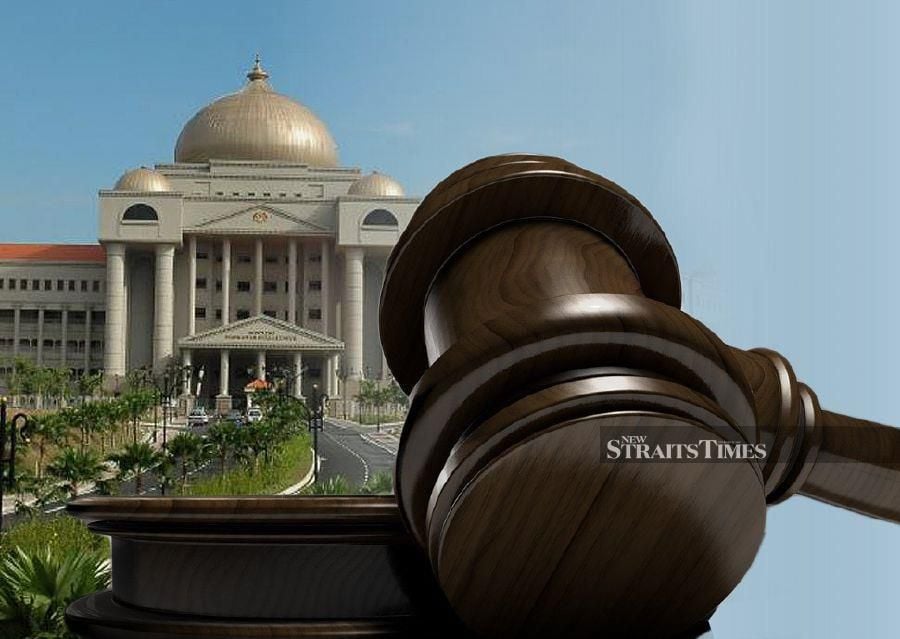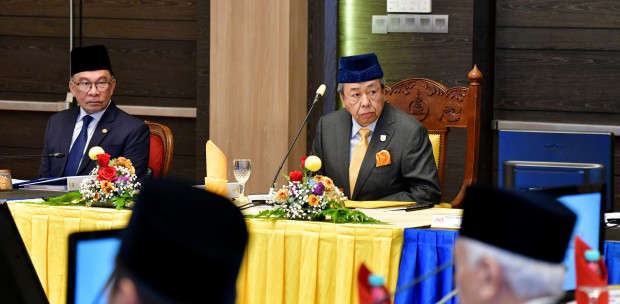PUTRAJAYA: The Federal Court has reserved its judgment on the motion launched by a 35-year-old man who is contesting a Selangor Syariah law provision on sexual intercourse against the order of nature.
The man had initiated the constitutional challenge of Section 28 of the Syariah Criminal offences (Selangor) Enactment 1995, which was the provision used for the charge framed against him for committing unnatural sexual intercourse.
A nine-man bench chaired by Chief Justice Tun Tengku Maimum Tuan Mat reserved the decision after hearing submissions by parties today.
"We will inform parties when we have a decision," said Tengku Maimun before adjourning the matter.
The hearing was also presided by Court of Appeal president Tan Sri Rohana Yusuf, Chief Judge of Malaya Tan Sri Azahar Mohamed, Chief Judge of Sabah and Sarawak Datuk Abang Iskandar Abang Hashim and Federal Court judges Datuk Seri Mohd Zawawi Salleh, Datuk P. Nallini, Datuk Vernon Ong Lam Kiat, Datuk Zabariah Mohd Yusof and Datuk Seri Hasanah Mohammed Hashim.
Earlier, Datuk Malik Imtiaz Sarwar who represented the man who is the petitioner in the legal action, submitted that the Selangor state legislature did not have the power to enact the provision.
This, he argued, was because the subject matter of the provision which is unnatural sex, is a matter within the Federal List in the Federal Constitution and falls within the ambit of criminal law.
He said that the Penal Code provisions were already enacted to address the purpose.
Malik also submitted that only Parliament has the exclusive power to enact laws that criminalise unnatural sex as it was in relation to the justice system.
When met after the proceedings, he said the case before the Apex court today was an opportunity to address the question on how to balance between the two jurisdictions of Parliament and the state legislature.
"Under the Constitution, the criminal system of law is in the Parliament's hands. So, Parliament has exclusive power to enact laws pertaining to justice system.
"We have offences involving Islam that the state (legislature) can enact. The question now before the court is how to reconcile the two powers (Parliament and state legislature)," he said.
Meanwhile, Selangor state legal advisor Datuk Salim Soib@Hamid who acted for the first respondent - the Selangor government - argued that the state law against unnatural sex was valid as it is against the precept of the religion of Islam.
Among others, he submitted that the state legislature was empowered to enact such laws as per the Ninth Schedule of the Federal Constitution.
Counsel Halimatunsa'diah Abu Ahmad who acted for the Selangor Islamic Religious Council (Mais) as the second respondent supported the state counsel's argument.
Counsel Abdul Rahim Sinwan represented the Federal Territories Islamic Religious Council (MAIWP) as an amicus curiae.
On May 25, the Federal Court granted leave to the man, whose name is being withheld for privacy purposes, to commence his constitutional challenge of Section 28 of the Syariah Criminal offences (Selangor) Enactment 1995, which he was charged under.
He was allowed to commence the proceedings by way of a petition against the Selangor Government to declare the provision invalid.
The man claimed that the legislature of the State of Selangor has no power to make such laws.
On Aug 21 last year, the man was charged with attempting to commit sexual intercourse against the order of nature with certain other male persons in a house in Selangor on Nov 9, 2018.
He pleaded not guilty to the charge and his trial at the Selongor Syariah High Court has been stayed pending the outcome of his motion.






